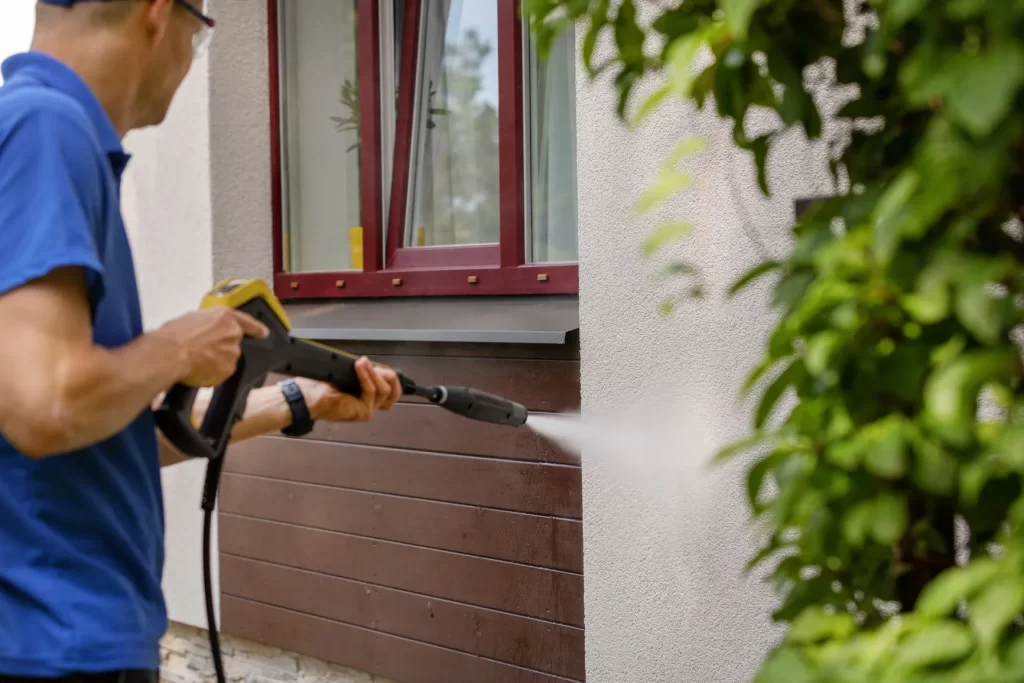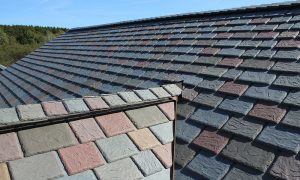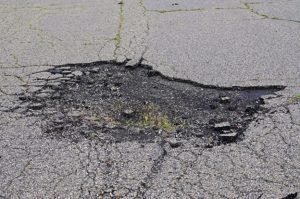Understanding Different Types of Power Washing Equipment

Power washing, also known as pressure washing, is a popular method for cleaning various surfaces around homes and commercial properties. This technique involves using high-pressure water jets to remove dirt, grime, and stains. However, not all power washing equipment is created equal. Understanding the different types of power washing equipment available can help you choose the right tool for your cleaning needs, whether you’re handling a DIY project or hiring a professional like Zach’s Gutter Cleaning. This article will explore the various types of power washing equipment, their uses, and how to select the best one for your specific needs.
1. Electric Pressure Washers
Electric pressure washers are ideal for light to moderate cleaning tasks. They are typically used for residential purposes and are well-suited for cleaning surfaces like patios, decks, driveways, and siding. These units are generally quieter than their gas-powered counterparts and are easier to maintain. They are also more environmentally friendly, as they do not emit exhaust fumes.
Electric pressure washers are usually less powerful than gas models, with pressure ratings ranging from 1,300 to 2,000 PSI (pounds per square inch). They are perfect for homeowners who need a reliable machine for occasional use. However, they are not the best choice for heavy-duty tasks or large commercial applications.
2. Gas Pressure Washers
For more demanding cleaning jobs, gas pressure washers are the go-to choice. These units are more powerful than electric models, offering pressure ratings between 2,000 and 4,000 PSI or higher. Gas pressure washers are suitable for cleaning tougher surfaces such as concrete driveways, large decks, and commercial buildings.
Gas pressure washers are portable and can operate independently of a power source, making them ideal for jobs in locations without easy access to electricity. They are, however, noisier and require more maintenance than electric models. Users need to handle fuel, oil changes, and regular engine upkeep.
3. Cold Water Pressure Washers
Cold water pressure washers use unheated water to clean surfaces. They are the most commonly used type of power washing equipment and are effective for removing dirt, mud, and debris. Cold water pressure washers are versatile and can handle various cleaning tasks, from washing vehicles to cleaning exterior walls.
Cold water models are often available in both electric and gas-powered versions. They are generally more affordable and suitable for most residential cleaning tasks. However, for grease or oil stains, hot water pressure washers may be more effective.
4. Hot Water Pressure Washers
Hot water pressure washers combine high-pressure water jets with heated water, which helps to dissolve and remove stubborn stains, grease, and oil. These machines are ideal for commercial and industrial applications where heavy-duty cleaning is required.
Hot water pressure washers can be particularly useful for businesses involved in automotive repair, food processing, or any industry where grease and oil are prevalent. They are more expensive than cold water models and require a power source to heat the water, but their effectiveness justifies the investment for many professional cleaning applications.
5. Commercial Pressure Washers
Commercial pressure washers are designed for frequent use and heavy-duty cleaning tasks. They often feature higher pressure ratings, more robust construction, and advanced features compared to residential models. These units are typically gas-powered and may come with additional accessories like large water tanks, high-capacity pumps, and specialized nozzles.
Businesses and professionals who offer cleaning services, like Zachs Gutter Cleaning, often use commercial pressure washers to handle a wide range of jobs efficiently. These machines are built to withstand rigorous use and deliver consistent performance.
6. Specialty Pressure Washers
Specialty pressure washers include units designed for specific tasks or surfaces. Examples include rotary or surface cleaners, which are designed for cleaning large, flat areas quickly and evenly. There are also models equipped with specific attachments for cleaning gutters, removing graffiti, or tackling delicate surfaces.
For example, when performing gutter cleaning, specialized pressure washer attachments can help to effectively remove debris and stains from gutters without causing damage. Zach’s Gutter Cleaning might use such equipment to ensure that every job is completed efficiently and to a high standard.
Choosing the Right Equipment
Selecting the right power washing equipment depends on several factors, including the type of surface being cleaned, the nature of the stains or grime, and the frequency of use. For light, occasional tasks, an electric pressure washer may suffice. For more demanding jobs, a gas-powered or hot water model might be necessary.
Understanding the various types of power washing equipment and their applications can help you make an informed decision. Whether you’re handling a DIY cleaning project or hiring professionals like Zach’s Gutter Cleaning, choosing the right equipment ensures that the job is done efficiently and effectively. Always consider the specific needs of your cleaning task and consult with experts if necessary to ensure you have the best tool for the job.






